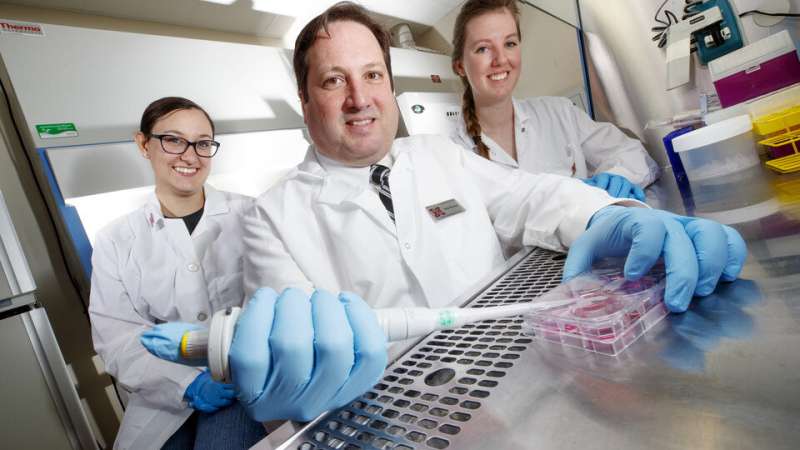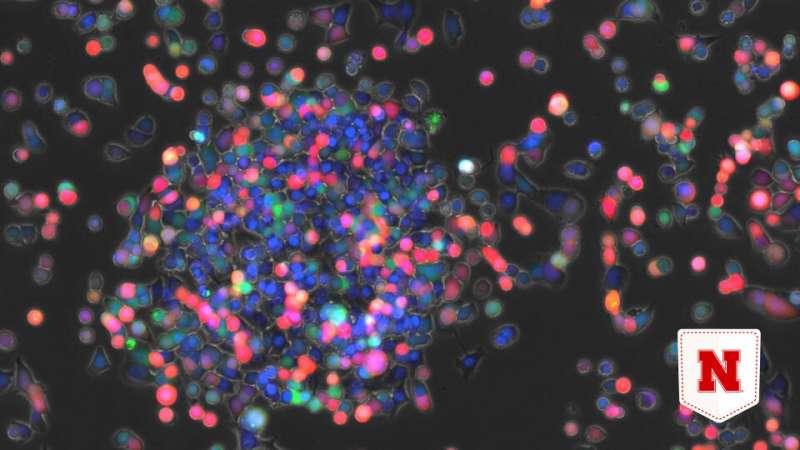Advance could expand vaccine's protection against respiratory disease

Acute respiratory disease traditionally strikes military recruits stationed in close quarters. But the disease—often spread by Adenovirus—can also afflict civilians in medical settings. One type of Adenovirus, Ad7, reportedly killed 11 children at a New Jersey hospital in 2018.
Since the 1970s, U.S. military forces have been vaccinated against Ad7. Because the existing vaccine contains a weakened version of naturally occurring Ad7, recipients can still pass it into the environment through their stool up to a month after it's administered. That makes the vaccine off-limits to civilians, who could indirectly transmit Ad7 to vulnerable populations: children, pregnant women, people with compromised immune systems.
Nebraska's Eric Weaver, Brianna Bullard and Brigette Corder have developed a strain of Ad7 that lacks a component needed to replicate beyond the genetic line of host cells it initially invades. Though the strain replicated within host cells frequently enough to generate immunity—serving the purpose of a vaccine—it became far less infectious after leaving those cells.
The feat could eventually direct the development of a civilian-safe, publicly available vaccine, the researchers said. Compatible animal models must be found before the research can advance beyond cell cultures, the team said.

More information: Brianna L. Bullard et al. A Single-Cycle Adenovirus Type 7 Vaccine for Prevention of Acute Respiratory Disease, Viruses (2019). DOI: 10.3390/v11050413


















